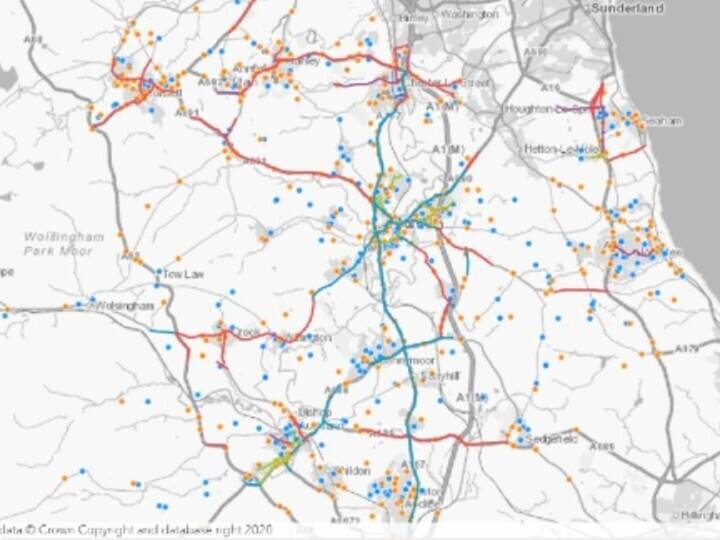NLPG Exemplar Award Winner – FiReControl Award for the Best Integration of the NLPG by a Fire & Rescue Service 2009: Lincoln Fire and Rescue.
The FiReControl Project has mandated the use of the NLPG as the gazetteer solution for Fire and Rescue Services (FRS) throughout England and Wales. The quality of an address list is especially important in a large geographical area such as Lincolnshire with 900 fire fighters and support staff operating out of 38 fire stations. In this instance, the effort has been concentrated on improving the data first: a win win situation, as it turns out, for all involved.
Lincolnshire Fire and Rescue (LFR) are adopting the NLPG for both Command and Control and also wider corporate use. The vision is to use the NLPG as the common address database for each service area, such as Community Fire Protection, the Risk Department and Legislative Fire Safety. LFR is currently migrating data from existing systems that currently support these areas to new software that enables sharing of data and connectivity through a centrally managed UPRN linked to the address.
On the data front, these aims have necessitated a pragmatic, process-led approach to ensure that the data used by the systems is fit for purpose. LFR has gone about this by developing strong working relationships with the seven Local Authority Land and Property Gazetteer custodians in their area of operation. These are: Lincoln City Council, Boston Borough Council, South Holland District Council, East Lindsey District Council, West Lindsey District Council, North Kesteven District Council and South Kesteven District Council.
In this process, LFR is able to request additions and changes to an LLPG if: each instance is an accurate and current representation of a real world situation; it is missing from the gazetteer; and, if added, will comply with the gazetteer’s BS 7666 conventions. Requests can refer to a street, BLPU or Land and Property Identifier (LPI). These conditions mean that the onus is on LFR to ensure that each change request is validated prior to sending to the Custodian. This is done by visiting the location to confirm its existence, and then by carrying out an NLPG search to ensure that it is missing or incorrect.
Upon receipt, the LLPG Custodian reviews the request and provides an anticipated timescale for resolution. Having validated the request, the custodian will either make or reject the change or addition. The custodian will then update the documentation and provide a new UPRN, if necessary. The process is accompanied by an informal service level agreement which ensures that custodians are not flooded with requests.
Key areas that have generated queries so far include positional accuracy, the use of town and locality information, and the inclusion of business name information for commercial properties.
Adoption of the NLPG by LFR will deliver significant benefits, not least operationally. The switch to a property based gazetteer will improve call handling and ensure that crews have all the intelligence and risk information they require to handle incidents. Internally one gazetteer will ensure all service areas within LFR will be linked, with the data accessible to all.
Throughout this process, LFR has put great emphasis on sound partnership working. This has delivered swift progress internally, with departments gaining a better understanding of each other’s aims and objectives. Working closely with the district council custodians has yielded significant improvements in the local gazetteers, and also raised the profile of the NLPG across the region, driving change within Lincolnshire County Council which has also decided to adopt the NLPG as a direct result.
Key benefits
- Established a pragmatic, process-led approach to improve local gazetteers.
- Standardisation and consistency in the way properties are described.
- Data sharing across all service systems ensures that risk data and intelligence will be linked and accessible.
- Improved partnership working with districts councils and the county council.
- Raised the profile of the NLPG.



